Thermodynamic Computing
January 3-5, 2019
Prince Wakiki Hotel
Prince Waikiki - Honolulu Luxury Hotel, Holomoana Street, Honolulu, HI, USA
Event Contact
Khari Douglas
kdouglas@cra.org
2022662933
Event Type
2019 Events, 2019 Visioning Activities
Event Category
The Computing Community Consortium (CCC) will hold a visioning workshop in Hawaii in early January, 2019 to create a vision for thermodynamic computing, a statement of research needs, and a summary of the current state of understanding of this new area. Workshop attendance will be by invitation only and travel expenses will be available for select participants. We seek short white papers to help create the agenda for the workshop and select attendees. See the application tab for more information.
Thermodynamics has a long history in the engineering of computing systems due to its role in power consumption, scaling, and device performance [1],[2]. In a different context, thermodynamically motivated algorithmic techniques are prevalent and highly successful in areas such as machine learning [3], simulated annealing [4], and neuromorphic systems. The foundational thinking underlying much of the existing technology derives largely from equilibrium properties of closed thermodynamic systems. We aim to foster a community to extend these foundations into the domain of non-equilibrium thermodynamics toward the development of a new class of technologies that we call open thermodynamic computers.
The overall intuition is that striving for thermodynamic efficiency is not only highly desirable in hardware components, but may also be used as an embedded capability in the creation of algorithms: can dissipated heat be used to trigger adaptation/restructuring of (parts of) the functioning hardware, thus allowing hardware to evolve increasingly efficient computing strategies? Recent theoretical developments in non-equilibrium thermodynamics suggest that thermodynamics drives the organization of open systems as a natural response to external input potentials; that is, that these systems adapt as they dissipate energy, enter low dissipation homeostatic states and as a result ‘learn’ to ‘predict’ future inputs [5],[6]. For example, lower bounds on thermodynamic efficiency in driven systems (away from equilibrium), indicate that systems have to retain relevant, predictive information in order to be thermodynamically efficient [7],[8]. This strategy is, of course, the same as what is followed in machine learning (and, in general, in science): predictive inference [9]. This interesting connection between energy efficiency and information processing inspires us to bring together researchers in the various disciplines with the goal of building the foundations that would allow us to build radically different computing systems.
This CCC workshop will gather a set of leading researchers working to define open thermodynamic computers, to describe the reasons that they should be studied, to enumerate the major challenges that lay before us, and to create a strategy for a way forward. We seek a diverse group of physical theorists, electrical and computer engineers, and electronic / ionic device researchers with strong understanding of thermodynamics.
References:
- Frank, Michael P. “The physical limits of computing.” Computing in Science & Engineering 4.3 (2002): 16-26.
- Lloyd, Seth. “Ultimate physical limits to computation.” Nature 406.6799 (2000): 1047.
- Dayan, Peter, et al. “The helmholtz machine.” Neural computation 7.5 (1995): 889-904.
- Černý, Vladimír. “Thermodynamical approach to the traveling salesman problem: An efficient simulation algorithm.” Journal of optimization theory and applications 45.1 (1985): 41-51.
- N. Ganesh, “A Thermodynamic Treatment of Intelligent Systems,” 2017 IEEE International Conference on Rebooting Computing (ICRC), Washington, DC, 2017, pp. 1-4.
- Perunov, Nikolay, Robert A. Marsland, and Jeremy L. England. “Statistical physics of adaptation.” Physical Review X6.2 (2016): 021036.
- Still, Susanne, et al. “Thermodynamics of prediction.” Physical review letters 109.12 (2012): 120604.
- Still, Susanne. “Thermodynamic cost and benefit of data representations.” arXiv preprint arXiv:1705.00612 (2017).
- Still, Susanne. “Information bottleneck approach to predictive inference.” Entropy 16.2 (2014): 968-989.
January 2, 2019 (Wednesday)
| 06:00 PM | Reception | BBQ Cabana |
January 3, 2019 (Thursday)
| 08:00 AM | Breakfast Available | Makiki Room |
| 09:00 AM | Welcome and Lightning Introductions | Piinaio Ballroom |
| 09:30 AM | Tutorial 1 - Theory (Gavin Crooks) | Piinaio Ballroom 1 |
| 10:30 AM | BREAK | Outside Piinaio Ballroom 1 |
| 11:00 AM | Tutorial 2 - Physical Systems (Joshua Yang) | Piinaio Ballroom 1 |
| 12:00 PM | Lunch / Reintroduce Breakout Goals | Makiki Room |
| 01:00 PM | Panel - Model Systems
| Piinaio Ballroom 1
|
| 01:30 PM | Break / Move to Breakout Rooms | Piinaio Ballroom 1 |
| 02:00 PM | Discussion Group Breakouts | Piinaio Ballroom 1, Waihi Boardroom, and Manoa Boardroom |
| 04:00 PM | BREAK | Outside Piinaio Ballroom 1 |
| 04:30 PM | Discussion Group Breakouts | Piinaio Ballroom 1, Waihi Boardroom, and Manoa Boardroom |
| 06:30 PM | Adjourn Day 1 |
| 06:30 PM | Social Followed by Dinner | Makiki Room |
January 4, 2019 (Friday)
| 08:00 AM | Breakfast Available | Maikiki Room |
| 09:00 AM | Discussion Groups Report Out: Proposed Priority Research Directions | Piinaio Ballroom 1 |
| 10:00 AM | Break / Committee Meets to Decide PRDs | Piinaio Ballroom 1 |
| 10:30 AM | PRD Assignments Announced | Piinaio Ballroom 1 |
| 11:00 AM | Parallel PRD Group Meetings | Piinaio Ballroom 1, Waihi Boardroom, and Manoa Boardroom |
| 12:00 PM | Lunch | Makiki Room |
| 01:00 PM | Parallel PRD Group Meetings | Piinaio Ballroom 1, Waihi Boardroom, and Manoa Boardroom |
| 02:30 PM | BREAK | Outside Piinaio Ballroom 1 |
| 03:00 PM | Parallel PRD Group Meetings | Piinaio Ballroom 1, Waihi Boardroom, and Manoa Boardroom |
| 04:00 PM | PRD Groups Report Out | Piinaio Ballroom 1 |
| 05:30 PM | Adjourn Day 2 |
| 06:30 PM | Social Followed by Dinner | Makiki Room |
January 5, 2019 (Saturday)
| 08:00 AM | Breakfast Available | Palolo Room |
| 09:00 AM | Group Discussion and Workshop Conclusions | Makiki Room |
| 10:00 AM | Writing Groups | Makiki Room, Manoa Room, and Waihi Room |
| 11:30 AM | BREAK | Outside Makiki Room |
| 11:45 AM | Further Discussion Based on Morning Writing | Makiki Room |
| 12:15 PM | Writing Groups 2 | Makiki Room, Manoa Room, and Waihi Room |
| 01:00 PM | Conclude Workshop and Lunch | Palolo Room |
Organizing Committee:
Tom Conte, Georgia Tech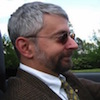 |
Erik DeBenedictis, Sandia National Laboratories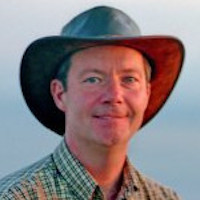 |
Natesh Ganesh, University of Massachusetts Amherst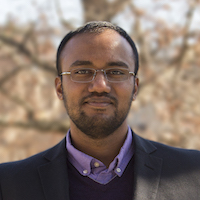 |
Todd Hylton, UC San Diego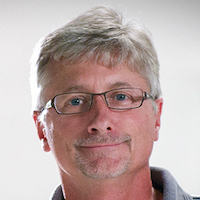 |
Susanne Still, University of Hawaii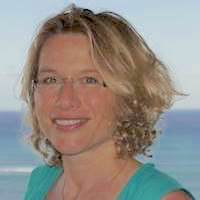 |
John Paul Strachan, Hewlett Packard Labs, HPE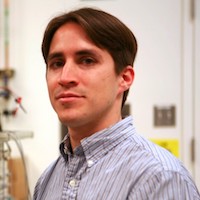 |
R. Stanley Williams, Texas A&M University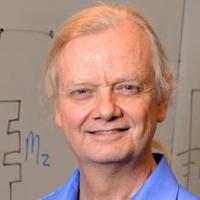 |
With Support From the CCC Post Moore’s Law Computing Task Force:
Mark Hill, University of Wisconsin, Madison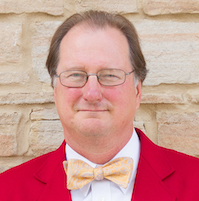 |
Kathy Yelick, University of California at Berkeley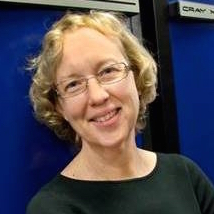 |
The Computing Community Consortium (CCC) will cover travel expenses for all participants who desire it. Participants are asked to make their own travel arrangements to get to the workshop, including purchasing airline tickets. Following the symposium, CCC will circulate a reimbursement form that participants will need to complete and submit, along with copies of receipts for amounts exceeding $75.
In general, standard Federal travel policies apply: CCC will reimburse for non-refundable economy airfare on U.S. Flag carriers; and no alcohol will be covered.
For more information, please see the Guidelines for Participant Reimbursements from CCC.
Additional questions about the reimbursement policy should be directed to Ann Drobnis, CCC Director (adrobnis [at] cra.org).
For this workshop, we request whitepapers of no more than two pages. Topics of interest include, but are not limited to:
- Non-equilibrium thermodynamic theory and its implications for self-organizing computing technologies, such as fluctuation-dissipation theorems and their ramifications regarding homeostasis, learning by prediction, stability, and plasticity.
- Novel device and component concepts that change and retain state (learn) in response to the thermodynamics of their environment, which may be suitable as the evolvable elements for future for thermodynamic computers.
- System concepts that integrate human-directed programmability and thermodynamically evolvable elements.
- Concepts to integrate and embed thermodynamic computers into an open environment of electrical and information potential.
- Non-equilibrium, thermodynamically inspired machine learning techniques and algorithms, such as simulated annealing in complex non-equilibrium environments and unsupervised learning by prediction.
- Challenge problems to motivate the development of thermodynamic computers
Topics out of scope include:
- Machine learning accelerators.
- Established machine-learning techniques.
- Brain simulations / models / simulators.
- Novel, programmable computing systems.
Authors of white papers may be asked to participate in teleconferences to develop an agenda prior to the workshop.






